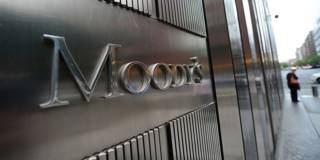The world's three major private credit-rating agencies are using their power to prevent low-income countries from restructuring their debts and stimulating their economies. The case for an independent public ratings agency has never been stronger.
NEW DELHI – On March 10, the credit-rating agency Moody’s placed Ethiopia on review for a downgrade. The problem isn’t violence and repression in Ethiopia’s embattled Tigray region. Rather, Moody’s has concluded that the Ethiopian government’s commitment to engage with private creditors, as part of the G20 Common Framework for Debt Treatments beyond the Debt Service Suspension Initiative, raises the risk that those creditors will incur losses. For that, the country apparently must be punished.
Whereas the DSSI aims to provide immediate relief to low-income countries during the pandemic, the Common Framework was designed to help debt-distressed sovereigns reschedule or reduce their liabilities. For many countries, it offers the best chance of making their debt burdens sustainable. But now, the threat of ratings downgrades is casting a shadow over these countries’ prospects.
This points to a systemic problem in international finance: the extraordinary – and undeserved – power wielded by a few private credit-rating agencies. Just three – Moody’s, S&P Global Ratings, and Fitch Ratings – control more than 94% of outstanding credit ratings. And there is significant cross-shareholding among them.

NEW DELHI – On March 10, the credit-rating agency Moody’s placed Ethiopia on review for a downgrade. The problem isn’t violence and repression in Ethiopia’s embattled Tigray region. Rather, Moody’s has concluded that the Ethiopian government’s commitment to engage with private creditors, as part of the G20 Common Framework for Debt Treatments beyond the Debt Service Suspension Initiative, raises the risk that those creditors will incur losses. For that, the country apparently must be punished.
Whereas the DSSI aims to provide immediate relief to low-income countries during the pandemic, the Common Framework was designed to help debt-distressed sovereigns reschedule or reduce their liabilities. For many countries, it offers the best chance of making their debt burdens sustainable. But now, the threat of ratings downgrades is casting a shadow over these countries’ prospects.
This points to a systemic problem in international finance: the extraordinary – and undeserved – power wielded by a few private credit-rating agencies. Just three – Moody’s, S&P Global Ratings, and Fitch Ratings – control more than 94% of outstanding credit ratings. And there is significant cross-shareholding among them.